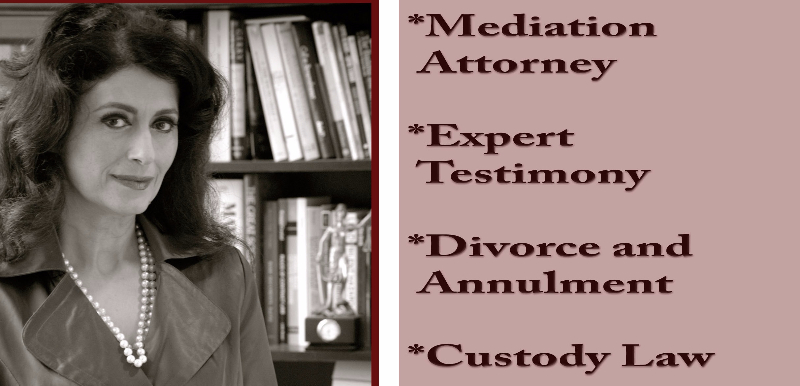How to Choose a Mediator

How to choose a Mediator
"Mediate don’t litigate" has become a term used often by proponents of Mediation to encourage couples to settle differences outside of courts and ideally without the involvement of litigation attorneys. In some cases, litigation may be the only option, it depends primarily on the couple’s demeanor towards one another. If a couple is interested and committed to an amicable resolution to a marriage, then Mediation may be the best option, emotionally and financially. Recently and unfortunately, the field of Matrimonial Mediation has been used as an entry level job for individuals with little or no credentials to handle financial and legal issues. Like any other field, Mediators need to be held to high standards of professionality. So when couples who have exhausted all avenues to repair their marriage and are ready to start a divorce through mediation, they should look for the following:
- Qualifications: In New York State, a basic 45 hours beginners training course allows you to hang your Mediation Shingle and start a quick cash business. It is not prohibited by the law to call yourself a mediator after beginners training. This is not a comprehensive approach to mediation but rather a start to a directive path of thinking. The field of mediation, through Alternative Dispute Resolution, is as vast and varied as the ocean. After sixteen years of practicing mediation and attending numerous workshops, conferences, and professional development events, I still find myself more as a student than a teacher. An Accredited Mediator has successfully completed at least 200 cases, started out under the supervision of senior mediators, have finished advanced mediation classes, and regularly participate in continuing education classes. Like other professions such as attorneys and physicians, accreditation is a rigorous and on-going process.
- Education: An average mediator has a four-year college degree and perhaps a professional degree in a secondary area such as law, mental health, social services or finance. Although one does not need to be an attorney to mediate settlements, he or she cannot draft or file any legal documents. A non-attorney can only write a memorandum of understanding for a couple. Then the couple must take the memorandum to an attorney to draft their legal separation. Then if the couple is pursuing a divorce, an attorney is needed to start a divorce process. If a couple chooses a mediator who is not an attorney, they must hire two attorneys to draft a legal separation.
- Experience: Everyday, I am blown away with diverse issues and circumstances that make up the complex nature of marriage. Only years of experience and a wide variety of cases create the creative and out-of-the-box thinking and problem-solving skills necessary to guide couples to a successfully negotiated outcome. Would you undergo a serious medical procedure with a physician without years of experience? Why treat such a sensitive time of your family's life any differently?
- Financial Analyst: A mediator who is also a certified Financial Analyst will be in a much better situation to handle the division of assets and complex financial issues.
When and if a need for divorce arises and you call a mediator, don’t hesitate to ask what other experiences he or she has had before becoming a mediator. After all, being a mediator is not about selling a product but it is more of a way of life which encompasses kindness, compassion along with education and experience.
Can I save your marriage? Most likely not. But I can save your family from much hurts and your hard earned money, YES I CAN.



